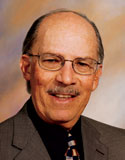Living Fully
Reflections from a Survivor of Cancer
by Alan S. Wolkenstein, MSW, ACSW
“Remember when you painted over sadness?
When you brushed to the side the hurt?
When you buried the anger?”
Bonnie H. Wolkenstein, PhD, (2017). “Camouflage,” Postcard Poems II. Unpublished.
We, especially us older folks, are often more concerned about memory loss than cancer, heart disease, and other severe and chronic illnesses. Nevertheless, cancer remains a frightening and formidable foe, a disease that takes and gives nothing back. Therefore, if we are to live with and through cancer, there are three seemingly simple, yet deeply profound, beliefs we should consider:
1. We are never cancer survivors, but survivors of cancer. The emphasis on cancer first puts us in an emotionally vulnerable position because it gives cancer too much when it comes to the question of who we are.
2. Cancer is an interpersonal illness and must never be lived with alone. It is a disease that psychologically thrives on keeping us alone and isolated. It must not do that.
3. To be wholly transformed into who we are destined to be, we must first recognize, accept, and be able to express to ourselves and significant others the suffering, the losses, and the need for grieving. All this while also keeping our lives full of meaning.
What can you do if you want to live fully? Find a true friend who will be there for you. Do not disconnect from others. The tendency to withdraw is there; do not give into it.
It’s easy to disregard or fail to recognize how much work, emotionally and spiritually, we must be engaged in to subscribe to these beliefs. Cancer and its treatment give us little respite to reflect on their merit as we are confronted with adjusting to a whole new life. A life we are neither emotionally nor spiritually prepared for.
Dealing with a cancer diagnosis can send us to the ends of the earth. The pathway is shrouded, the signposts written in terminology we do not understand and cannot read, and we find few others ahead of us on the same path who can show us the way. We feel isolated, lonely, and fearful of our future. Perhaps it is the first time we (and our loved ones) experience fear of this kind.
Yes, there are hospital and social agency groups to join, but not every one of us can share ourselves publicly. Perhaps we are so frightened that we are incapable of reaching out or are embarrassed to listen to others and share our experiences with them. We may incorrectly believe joining such groups is a sign of personal weakness or that others will judge us. The burdens we carry may exhaust us, leaving us without the physical strength and stamina to take part. There may be intense anxiety we experience from the treatments we require and from entering the world of hospitals, healthcare systems, doctors, nurses, and caregivers. For some, we lose our faith in ourselves and even in God. The future is uncertain, and we are forced to face our fears of the unknown. Our lives become fair game, as we are unprepared for what lies ahead.
What can you do if you want to live fully? Find a true friend who will be there for you. Do not disconnect from your family and friends. The tendency to withdraw is there; do not give into it. But know this: some will pull away. They will become fatigued and want you to get on with your life so that they can get on with theirs. And that is OK. Others will stay and travel with you.
No one is ever prepared for a cancer diagnosis. But for some of us, it becomes a part of our lives. If we live with and through it, it will transform us.
Living fully requires an awareness that there will be a change in the relationship between a survivor of cancer and their family members, especially if the survivor is a senior adult. This shift from adult child to caregiver can occur as soon as the diagnosis is made, even when little caregiving is required. There is a significant perceptual change that happens that must be talked about and explored if the person with cancer and adult children are to move forward with their new structural and emotional roles. This discussion is necessary and vital, yet we seldom have it.
A support group can help. A professional counselor can assist. A mentor or guide is always helpful. Talk to your religious leader. If you do not have one, find one. He or she will, I hope, be able to guide you back to beliefs and practices that can help you if you had previously jettisoned them.
Consider meditation, guided imagery, and supportive relationships. I listened to a self-healing CD over a thousand times when I was dealing with my own cancer diagnosis and treatment. I sought therapy. I joined a group. I reached out to others for support and guidance. I reconnected with my faith. I found the love and encouragement I desperately needed from my wife. My family kept a “place” for me at the kitchen table so that I would feel part of their lives. They seemed to know what I needed. “Hey, Dad, how are you doing today?” “Come on, Alan, let’s go for a walk.” All this while the treatments took my strength and tugged at my will to live. With time and the work that was necessary, things changed. The passage of time is important, but we must do something in that time.
I would be remiss if I did not count the number of survivors of cancer who cope with their illness and adapt to it with little or no help. They tend to be people who have always coped well and perceive cancer as just another obstacle for them to overcome. There are also others who have always coped well but who are overwhelmed by cancer and need consultation, guidance, and support from others.
Last, there are people who have struggled to cope with challenges all their lives and have never done well. They will, in all reality, continue to manage poorly as cancer invades their lives. They may do well with support but may lack the coping skills to thrive.
As I reflect, I believe there is more to the beauty of life than we expected – that is, if we have the courage and strength to cope and to adapt to our present and our future. No one is ever prepared for a cancer diagnosis. But for some of us, it becomes a part of our lives. If we live with and through it, it will transform us. A significant portion of that transformation comes with the understanding that we can live fully despite a diagnosis of cancer. But only by acknowledging and grieving our losses will we be able to do so.

Professor Alan S. Wolkenstein is a retired clinical professor of Family Medicine who taught family dynamics and social medicine for over 30 years to primary care physicians in graduate training at the University of Wisconsin School of Medicine and Public Health in Madison, WI. Being a survivor of cancer has given him the opportunity to consult with individuals and families struggling with significant healthcare problems. He now lectures to small and large groups on enhancing coping strategies and quality of life regardless of the obstacles families face in an uncertain future.
This article was published in Coping® with Cancer magazine, September/October 2018.
Everyone has a unique story to share. Do you want to share your survivor story? We consider a cancer survivor to be anyone living with a history of cancer – from diagnosis through the remainder of life. Here are our submission guidelines.


